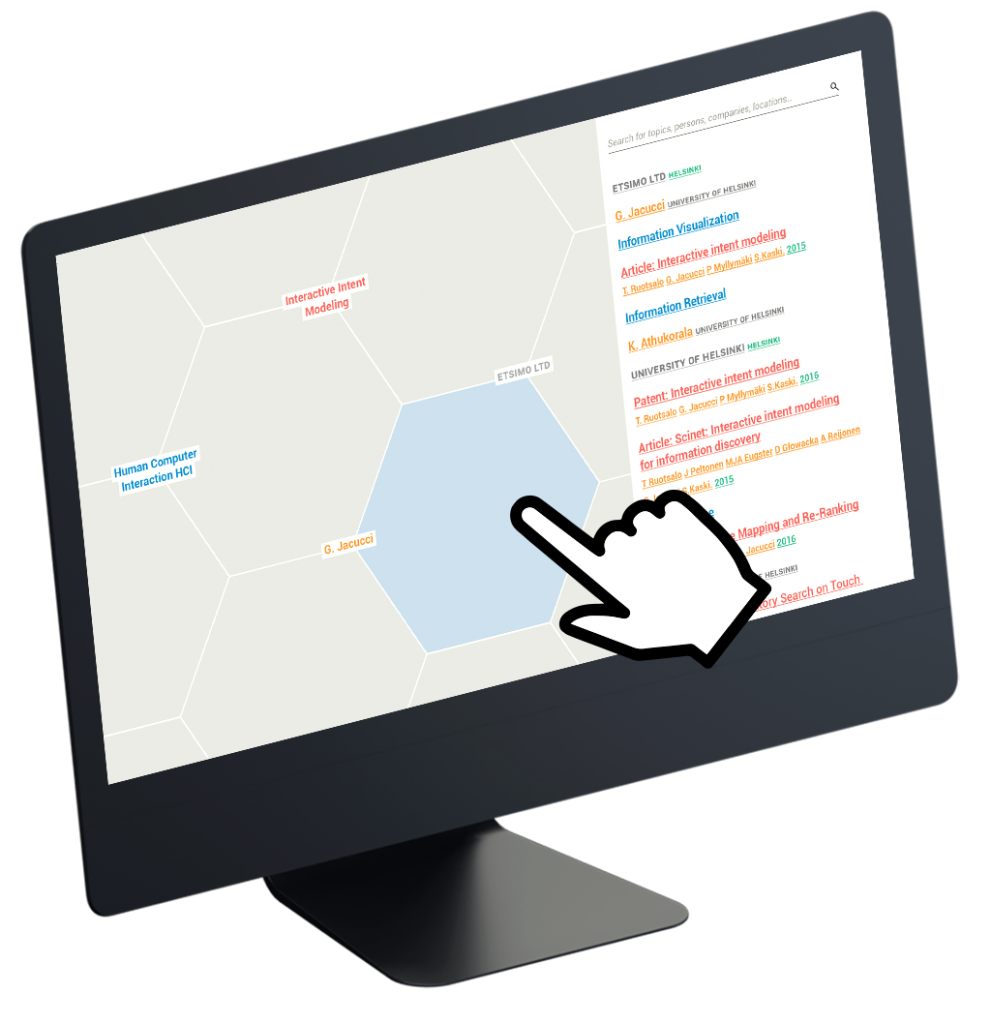Welcome to the Media Lab Doctoral Seminar
TIME: Thursday November 23, from 16:00–19:00
LOCATION: Aalto University Harald Herlin Learning Centre, Otaniementie 9, Espoo (Otaniemi), 1st floor room 116 (Johanna meeting room).
DOM-L0003 Doctor of Arts at Media Lab Seminar
Responsible teacher: Prof. Lily Díaz-Kommonen
Presentations by Professor Jari Saramäki, Dept. of Computer Science, and Khalil Klouche, doctoral student at Media Lab. See abstracts below.
The seminar is open for all. Welcome!
Mobile phones, social networks, and patterns of interaction
by Professor Jari Saramäki
Abstract: The world is run by networks – from networks of biological processes inside our cells to the neural networks of our brains, and very importantly, to the social networks that we are all part of. Many of the most important, disruptive technological changes of the recent decades have been driven by our need to form and maintain social ties: mobile telephones, the Internet, social media platforms. However, science has only lately started to uncover the large-scale features of human social networks. I will present a series of discoveries on human social networks, obtained with the help of Big Data on mobile phone communication between millions of individuals. I will focus on the importance of weak ties, the persistence of the ways how we structure our social networks, and the tendency for similar people to communicate with each other, and discuss the implications of these findings.
 Prof. Jari Saramäki (born 1971) is an internationally recognised scholar working in the fields of complex systems and networks (ISI Web of Science: 80 publications, 3505 citations, h-index 27 / Google Scholar: h-index 35, 7460 citations). He received his PhD in 1998 in engineering physics, studying low-temperature quantum phenomena. He has also worked in data mining and telecommunications industries. He has been appointed an invited professor at École Normale Supérieure de Lyon, France (May 2017), visiting scholar at the University of Oxford, UK (fall 2010) and visiting professor at the Université Catholique de Louvain, Belgium (Sept 2008). He has been one of the pioneers of the temporal networks framework and is well-known for work in social networks and computational social science.
Prof. Jari Saramäki (born 1971) is an internationally recognised scholar working in the fields of complex systems and networks (ISI Web of Science: 80 publications, 3505 citations, h-index 27 / Google Scholar: h-index 35, 7460 citations). He received his PhD in 1998 in engineering physics, studying low-temperature quantum phenomena. He has also worked in data mining and telecommunications industries. He has been appointed an invited professor at École Normale Supérieure de Lyon, France (May 2017), visiting scholar at the University of Oxford, UK (fall 2010) and visiting professor at the Université Catholique de Louvain, Belgium (Sept 2008). He has been one of the pioneers of the temporal networks framework and is well-known for work in social networks and computational social science.
Entity-based Affordances for Fluid Information Practices
by Khalil Klouche
Abstract: In the early 90s, document linking and embedding was described as the new hypermedia structuring paradigm, and the world wide web was quickly spreading, fueled by the miracle of the hyperlink. Since then, users are guided from one source of information to another via fixed references determined by the content creators, and rely on search engines when they need personalized access points to the information space. Although the same paradigm has subsisted so far, it is not suited to the current reality of information access, which brings both challenges and technical opportunities, and makes for an appropriate time to think of an alternative information seeking paradigm.
The amount of available information keeps on growing, and access points provided by conventional query-and-response search engines – the ten blue links – are too narrow to offer a sensible overview of available material related to a given query. We need options for broader and more personalized access to information, as well as support for making sense of it. Thankfully, new technologies in information retrieval create opportunities to address these problems and rethink on-line media access and structuring. As entity search and recommendation become a reality, the user’s information trail relies less on documents linked explicitly by content creators. Users have now the opportunity to finely steer their progression within the information space, in accordance to their immediate needs, understanding and inspiration. Related information and overview of the data can be computed on the fly to suit the very specific needs of each user at any time during the exploration, providing constant access to more detailed or more general information, new directions and branching topics.
My research explores interaction techniques designed to support entity-based information exploration, and grounds it in available literature. The main contribution is a design template describing the hypercue, an interactive representation of entities that provides personalized access points to information, and which serves as a complement to the hyperlink. Hypercues create opportunities to flexibly discover, store and share information, and gain insights of the data. The Hypercue design template consists of a minimal set of affordances that ensure all important features for supporting exploratory search can be addressed, while leaving enough design space to facilitate integration within a variety of systems.
 Khalil Klouche is a doctoral student at Media Lab Helsinki and a researcher in Human-Computer Interaction (HCI) at the Computer Science department of University of Helsinki. He holds a master’s degree in interactive design from the University of Applied Sciences of Western Switzerland. His research focuses on the design, development and evaluation of novel interactive systems to access and explore information.
Khalil Klouche is a doctoral student at Media Lab Helsinki and a researcher in Human-Computer Interaction (HCI) at the Computer Science department of University of Helsinki. He holds a master’s degree in interactive design from the University of Applied Sciences of Western Switzerland. His research focuses on the design, development and evaluation of novel interactive systems to access and explore information.

